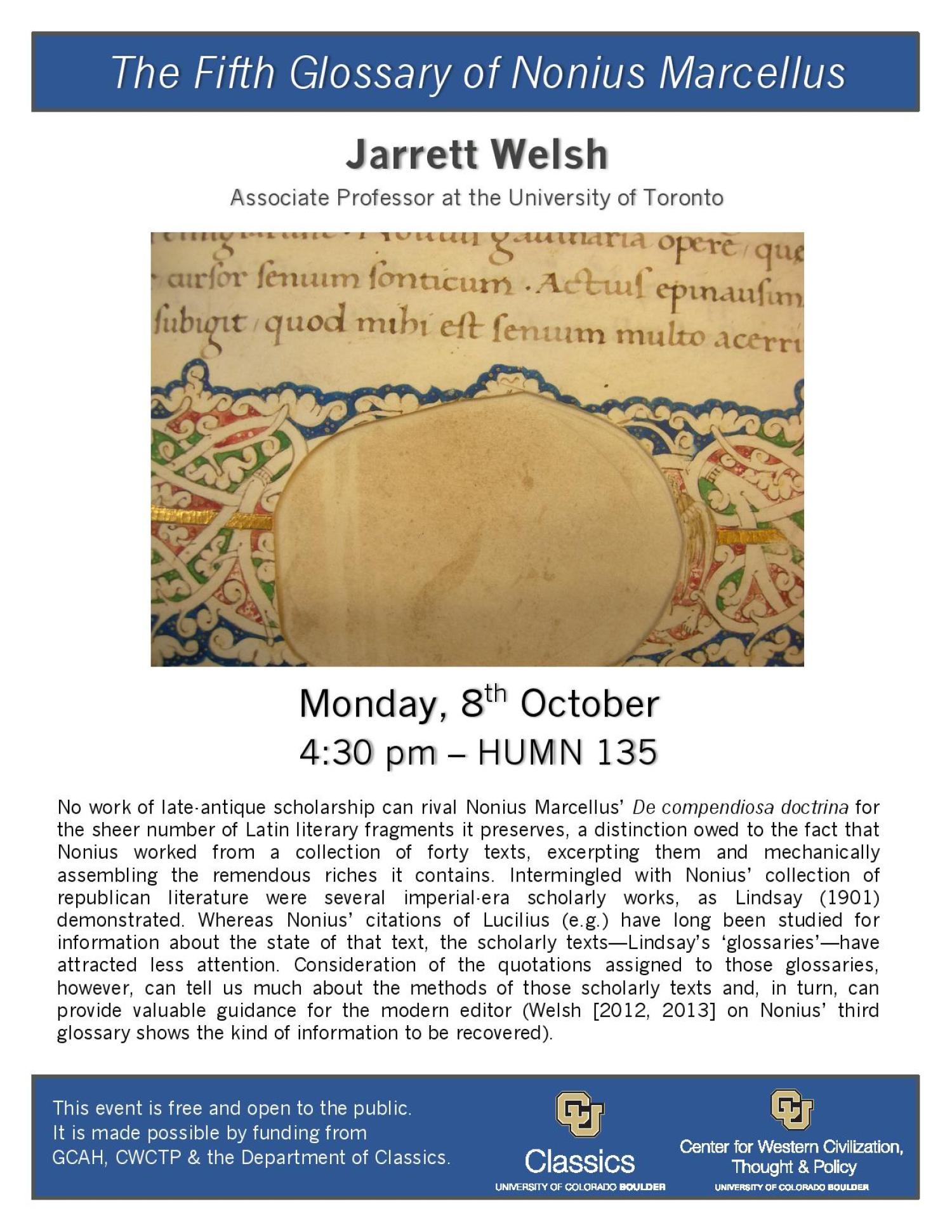The Fifth Glossary of Nonius Marcellus

The Classics Department presents "The Fifth Glossary of Nonius Marcellus" on Monday, October 8th at 4:30 in HUMN 135, by speaker Jarrett Welsh, Associate Professor at the University of Toronto.
No work of late-antique scholarship can rival Nonius Marcellus' De compendiosa doctrina for the sheer number of Latin literary fragments it preserves, a distinction owed to the fact that Nonius worked from a collection of forty texts, excerpting them and mechanically assembling the remendous riches it contains. Intermingled iwth Nonius' collection of republican literature were several imperial-era scholarly works, as Lindsay (1901) demonstrated. Whereas Nonius' citations of Lucilius (e.g.) have long been studied for information about the state of that text, the scholarly texts--Lindsay's 'glossaries'--have attracted less attention. Consideration of the quotations assigned to those glossaries, provide valuable guidance for the modern editor (Welsh [2012, 2013] on Nonius' third glossary shows the kind of information to be recovered).
Results
Welsh's dialogue, “The fifth glossary of Nonius Marcellus” animated a lively audience of about 25 graduate students, faculty and members of the general public. Welsh’s depth of understanding of the fourth century CE encyclopaedist is astonishing, but what was equally impressive, as several members of the audience commented, is the degree to which he made his subject accessible and fascinating both to those such as myself with an established interest in understanding Nonius and to those who may never previously have heard of him. Building on the work of W.M. Lindsay and D.C. White, Welsh can not only show that Nonius worked from 40 sources of an incredible variety—some of them primary texts dating to the era of the Roman Republic, others of them the works of grammarians working in traditions that tended only to the fossilization of the subject-matter, miscellanists such as Aulus Gellius (c. 2 CE) and a great variety of others—but can characterize those sources individually. He effectively guided us through a workshop on how to identify the traits of one of Nonius’ 40 sources, known simply as the “fifth glossary”, and showed us how a knowledge of those traits is an essential prerequisite for the work of an editor looking to present the literary materials preserved in Nonius via that source. It was a thoroughly informative and a thoroughly engaging presentation.
The Center for Western Civilization, Thought and Policy funds research and educational initiatives that contribute to critical reflection on the development of Western civilization. All CU Boulder faculty and students are eligible to apply. If you are interested in applying for a CWCTP faculty grant, deadlines are rolling throughout the year.

